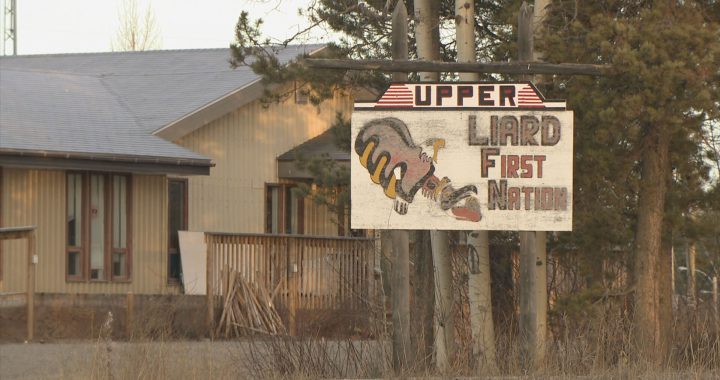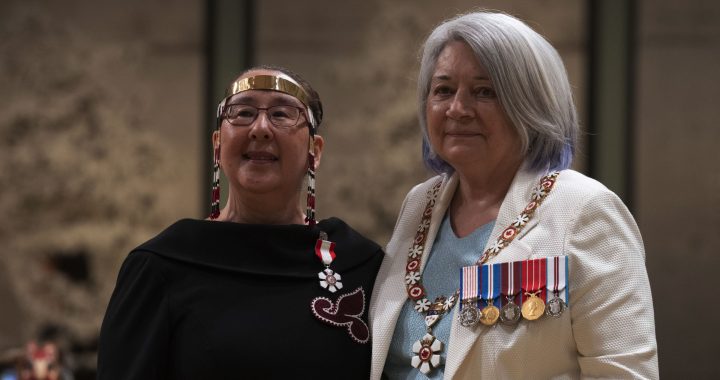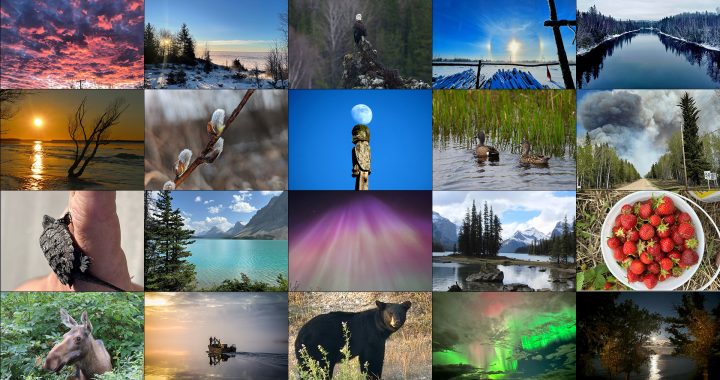Trina Roache
APTN National News
The federal government is adding $2.9 billion to its loan guarantee for the controversial and over-budget Muskrat Falls hydroelectric project in Labrador.
In 2012, the previous government under Stephen Harper had given Newfoundland and Labrador $6.4 billion in loan guarantees to get the project off the ground.
Premier Dwight Ball said this loan guarantee will help keep the project “on track.” The Muskrat Falls dam is behind schedule and over budget at $11.4 billion.
In a statement released Thursday, Ball said, “Our government continues to work with our federal and provincial colleagues to ensure the project is proceeding in the best interests of the Newfoundlanders and Labradorians.”
For the federal government, Muskrat Falls is an important source of clean energy.
“The Lower Churchill projects are helping the people of Newfoundland and Labrador and will contribute to the achievement of Canada’s carbon emissions reduction targets,” said Jim Carr, Canada’s Minister of Natural Resources in a statement.
See related stories: Muskrat Falls
The announcement comes at a time when Muskrat Falls is under the microscope. Concerns over the impact of the dam on the health of Innu and Inuit who live downstream have ignited protests and rallies in recent weeks.
In October, 50 people had stormed the Muskrat Falls construction site and occupied the main building, effectively shutting down operations for five days and sending 700 workers home.
An historic agreement between the premier and Innu and Inuit leaders seemed to settle the dispute.
The first step – Indigenous groups have a chance to do independent reviews of the projects engineering reports to see if the first flooding has to happen. And if it does, to what extent.
Nalcor, the Crown corporation and lead on the project, said flooding for the reservoir has to take place sooner rather than later.
And this week, Nalcor CEO Stan Marshall said the protests cost the project hundreds of millions of dollars and that initial flooding needs to happen as early as this weekend before the river freezes up.
Johannes Lampe, President of the Nunatsiavut Government, sought assurances from the province that it would stick to the terms of the deal struck after a marathon, 12 hour meeting.
And in a release on Wednesday, Lampe relayed a message from Premier Ball that the province would honour its commitment.
“Nalcor has been directed to not increase the water levels at Muskrat Falls until all Indigenous leaders have reviewed the engineering reports provided,” stated the premier. “The indigenous leaders have committed to providing the government with their assessments of the engineering reports on Friday, Nov. 4, 2016.”
At issue is methylmercury. A study by Harvard University in 2015 predicts high levels of the naturally-occurring toxin will be released from trees and topsoil when the reservoir is flooded.
Land protectors have demanded the reservoir be completely cleared before flooding.
Inuit officials have held public meetings in Labrador this week to address remaining concerns and questions.
“People are still mad and upset, or not understanding, or more to the point, not trusting it,” said long-time activist Jim Learning. “But that’s okay. If Nalcor goes against us, they’re basically telling the Newfoundland Government to go to hell.”
Learning said he isn’t as concerned now about the methylmercury. He says organic matter won’t decay in the cold waters over the winter. And the deal reached with the province stipulates the flood waters will be released and the river returned to a natural flow in the Spring of 2017.
Learning says another big concern that hasn’t gained as much traction in the media is around geological stability of an area of the dam called the North Spur.
While a statement from Siobhan Coady, Minister of Natural Resources, “is assuring the people of Newfoundland and Labrador that engineering supports North Spur dam safety,” and cites over 30 engineering and geotechnical studies.
But that’s small comfort to people who live downstream and don’t trust the science Nalcor has relied on.
“You have a choice about being poisoned. But you have no choice when the water comes roaring down from the river because the North Spur gave way, and you’re going to drown,” said Learning.
While the Canadian Government said it will monitor the project “to protect the interests of Canadian taxpayers,” Learning asked about reconciliation and the interests of the Innu and Inuit in Labrador.
[email protected]










